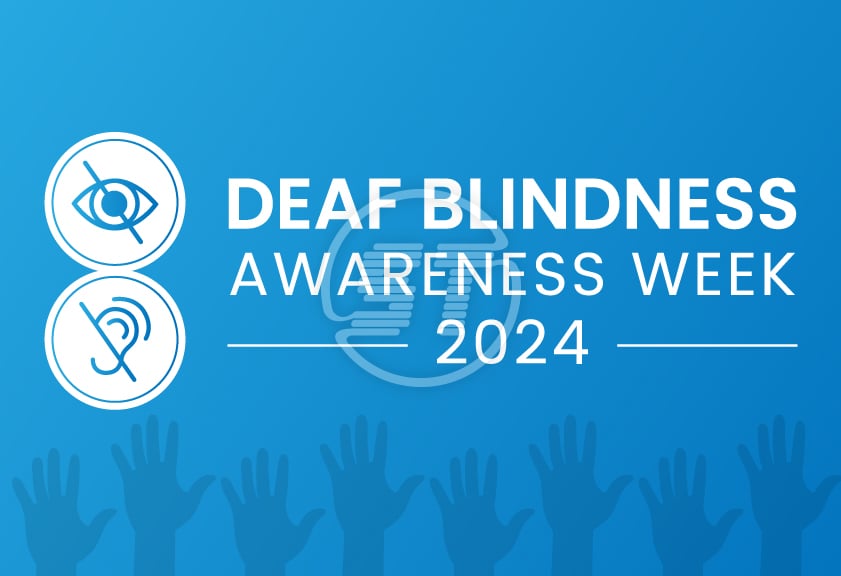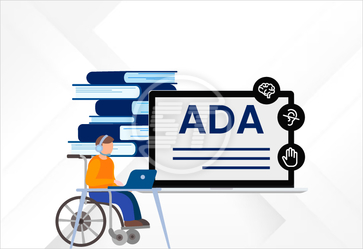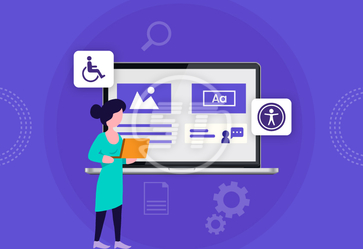Deaf blindness is a unique and multifaceted disability that combines varying degrees of both hearing and visual impairments. This condition can profoundly impact communication, access to information, and navigation of physical environments. Individuals with deaf-blindness face significant challenges, but with the right support and technology, they can lead fulfilling, independent lives.
Since American author and educator Helen Keller had this disability; President Ronald Reagan declared June last week (June 24 to 30, this year) as Deaf-Blind Awareness Week in 1984. It was in honor of Ms. Helen Keller because she was born on June 27, 1880, in Tuscumbia, Alabama.
Importance of Deaf-Blindness Awareness Week
Deaf-Blindness Awareness Week observed annually during the last week of June, serves as a crucial platform to highlight the needs and rights of individuals with deaf-blindness. It aims to raise public awareness, promote understanding, and advocate for the necessary accommodations and support. Lately, the focus of awareness week is on empowering those individuals suffering from this disability through enhanced digital inclusion.
Since digital inclusion is a pathway to empowerment for everyone, regardless of their abilities. An inclusive web world is accessible and provides opportunities to disabled individuals. For individuals with hearing impairments, enhanced digital inclusion can transform daily life, opening doors to education, employment, social connections, and more.
Strategies for organizations to enhance digital inclusion
Accessible technology
Modern technology offers a range of assistive devices such as hearing aids, cochlear implants, and tactile devices that can significantly improve communication and accessibility.
For those with combined visual and hearing impairments, screen readers and screen magnifiers make digital content accessible, converting text to speech or providing enlarged text for easier reading.
Inclusive web design
Videos and audio content should include captions and transcriptions to ensure accessibility for those with hearing impairments.
Websites should be designed with intuitive navigation and clear layouts to facilitate ease of use for individuals with varying levels of visual and auditory capabilities.
Training programs
Offering digital literacy programs tailored for individuals with deaf blindness can equip them with the skills needed to navigate and utilize technology effectively.
Providing training for educators and employers on how to accommodate and support individuals with deaf blindness can foster more inclusive learning and working environments.
Success stories: Digital inclusion in action
Remote communication
Platforms like Zoom and Microsoft Teams have incorporated accessibility features such as live captioning and sign language interpretation, making remote communication more inclusive.
Smart home technology
Devices like smart doorbells and home assistants can be customized with visual alerts and tactile notifications, enhancing independence and safety for individuals with deaf blindness.
Role of organizations to get involved in spreading information about deaf blindness!
Raise awareness
Share correct information about deaf-blindness and the importance of digital inclusion on social media and within the community.
Sharing stories and articles on social media about deaf blindness is a good way to engage several people at a time. Using relevant hashtags to post stories and articles help reaching more people.
Collaboration with media outlets for press releases, interviews, and podcasts can help amplify organizations’ voice.
Leveraging technology to host webinars and online workshops on digital inclusion, influencer collaboration, and celebrity endorsements are some other strategies to raise awareness about deaf blindness.
Support advocacy groups
Donate to or volunteer with organizations that advocate for the rights and needs of individuals with deaf blindness. The advocacy groups require financial support to continue their initiatives. Thus, helping them via donations and fundraising activities is a huge contribution.
Organizations have a colossal community of user base. Thus, they can speak to their audiences more about challenges faced by individuals with deaf-blindness and the importance of support and inclusion.
They can contact legislators via emails or other channels and talk about the rights of those individuals.
One crucial help organization can do is participate in beta testing for new assistive technologies and provide feedback. So that more suitable and user-friendly solutions can be made for individuals with deaf blindness.
During deaf-blindness Awareness Week 2024, advocacy efforts will focus on pushing for broader implementation of accessibility standards and greater investment in accessible technology research and development.
Policymakers, technology developers, educators, and community members are encouraged to collaborate in creating a more inclusive digital landscape.
Promote accessibility
Encourage businesses and institutions to adopt inclusive practices and technologies. Organizations can run campaigns specifically dedicated to deaf-blindness Awareness Week. For example, creating and displaying Hellen Keller’s graphic image and describing her personality. The image with a simple yet powerful message thereby people can at least know about this disability and understand that those individuals can learn and live their lives independently.
Wrapping up
Deaf-Blindness Awareness Week 2024 is a time to celebrate the advancements in accessibility and digital inclusion while recognizing the ongoing challenges faced by individuals with deaf-blindness. By enhancing digital inclusion, we can empower those with hearing and visual impairments to fully participate in and contribute to society, fostering a world that values and supports diversity and inclusion.


